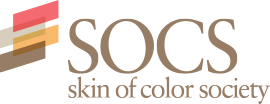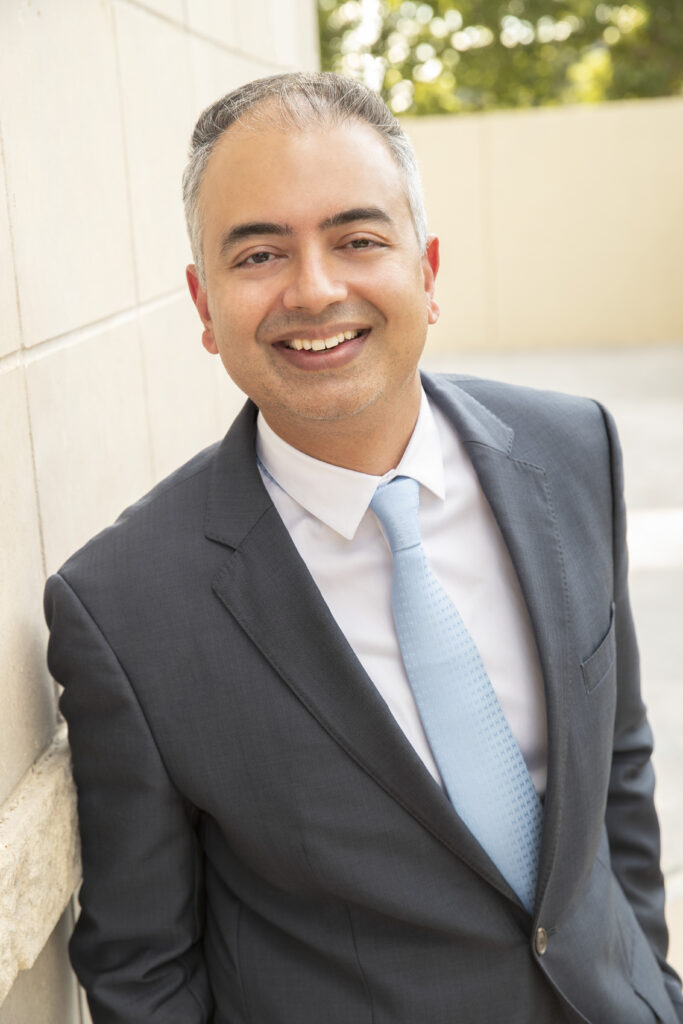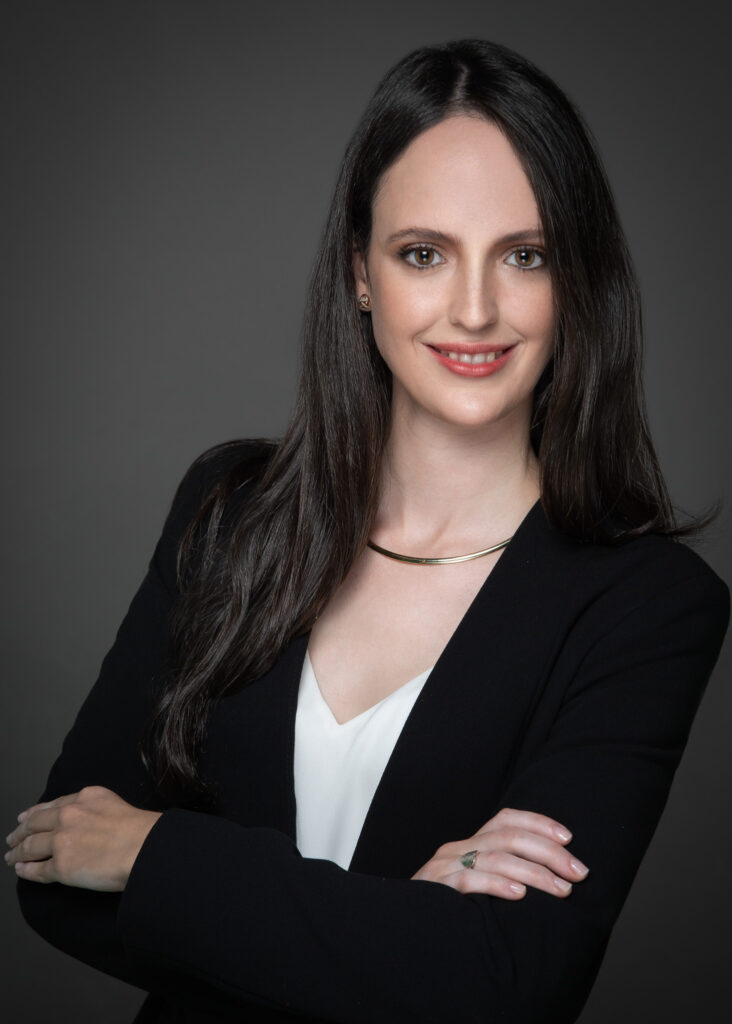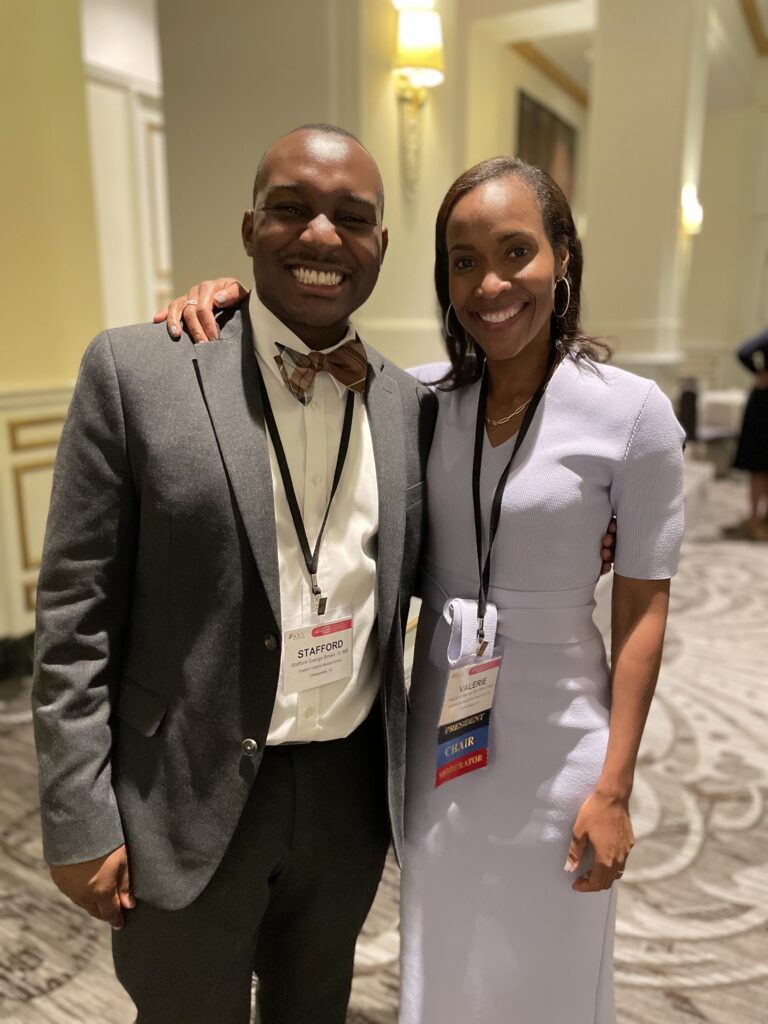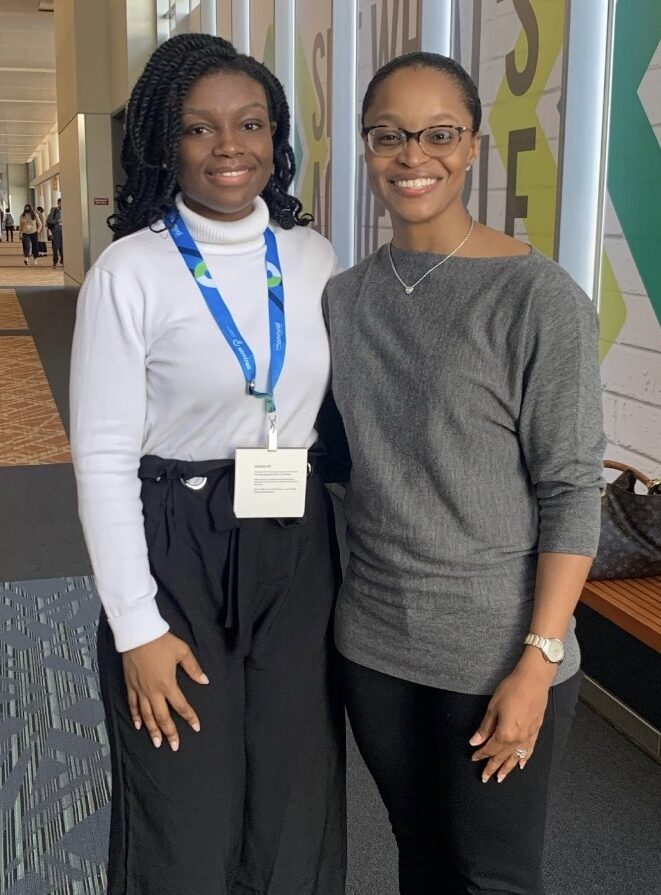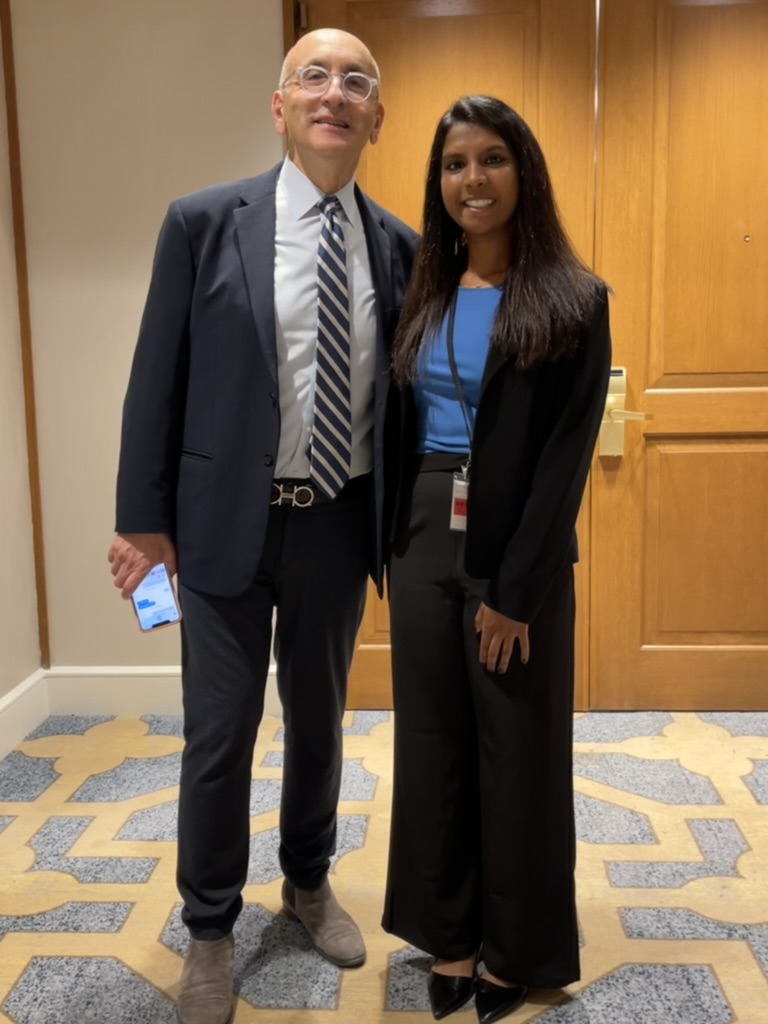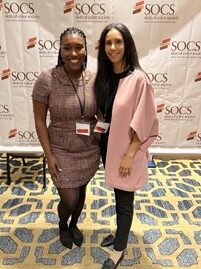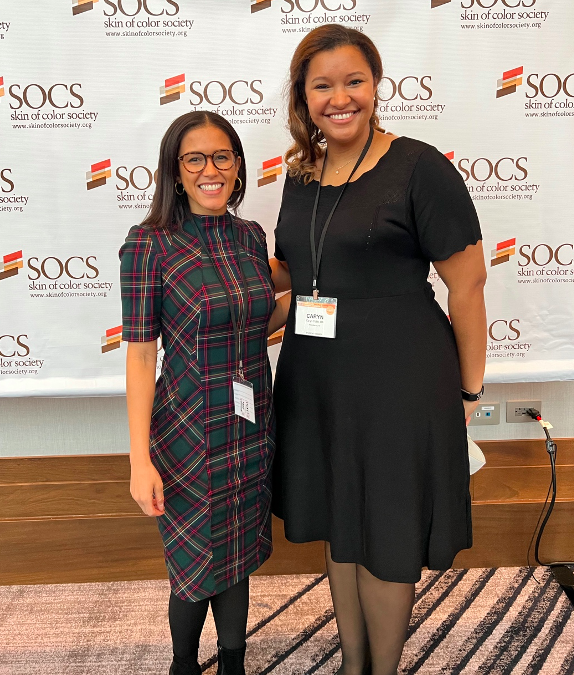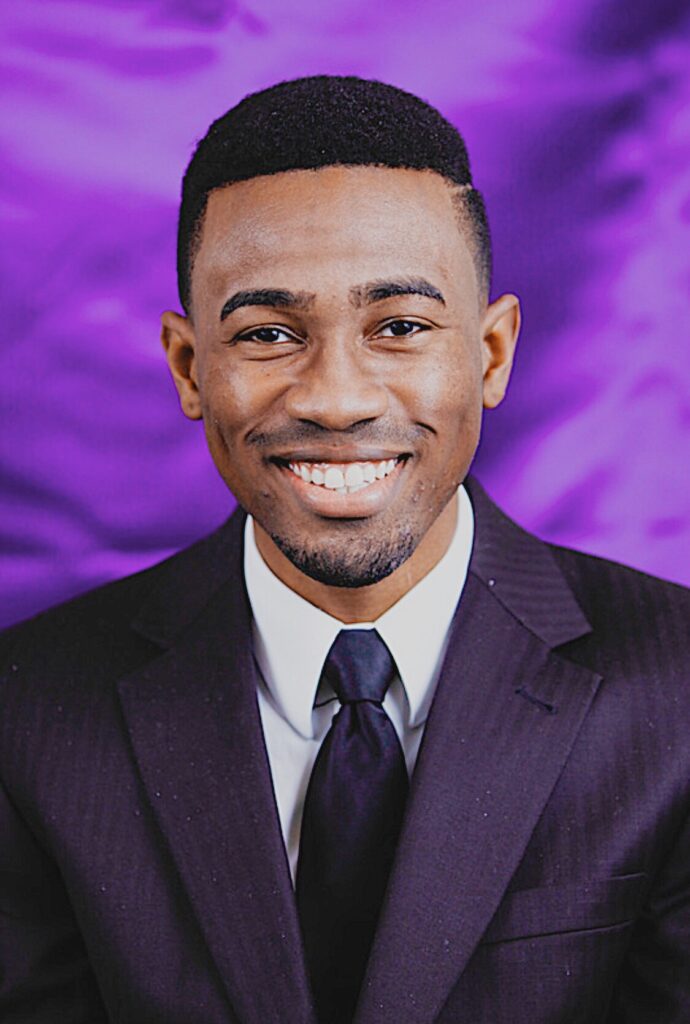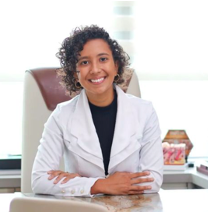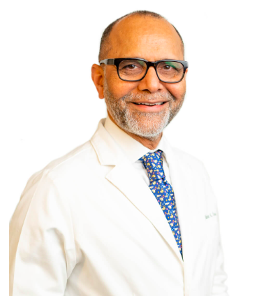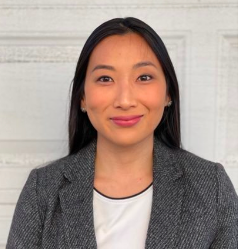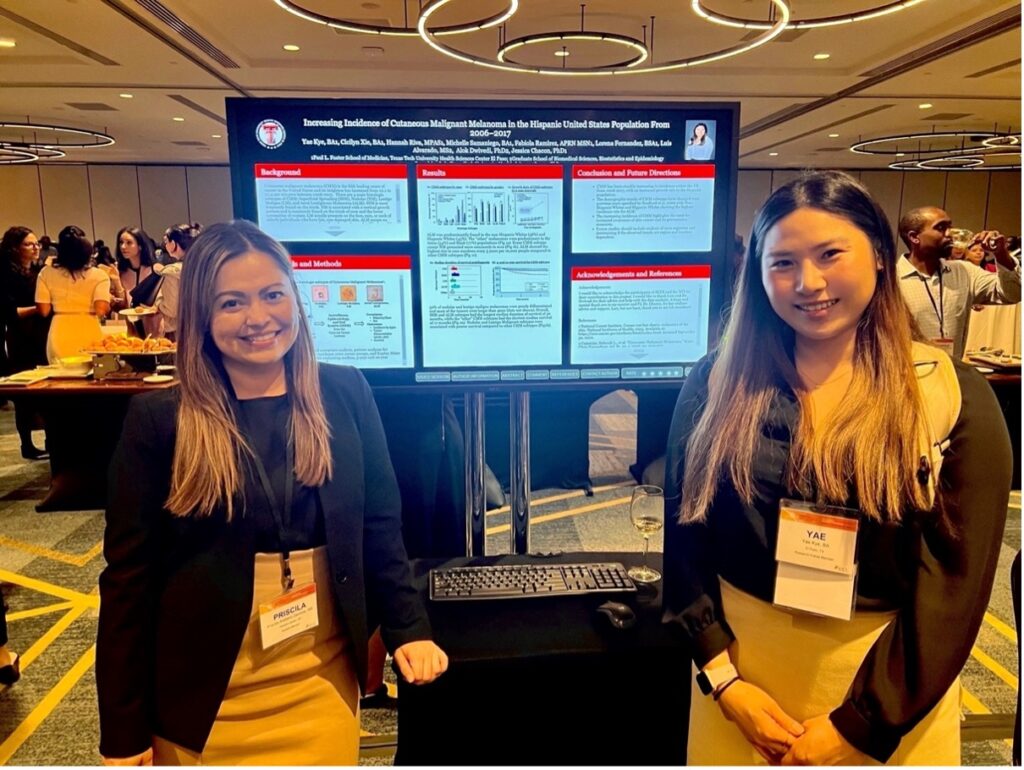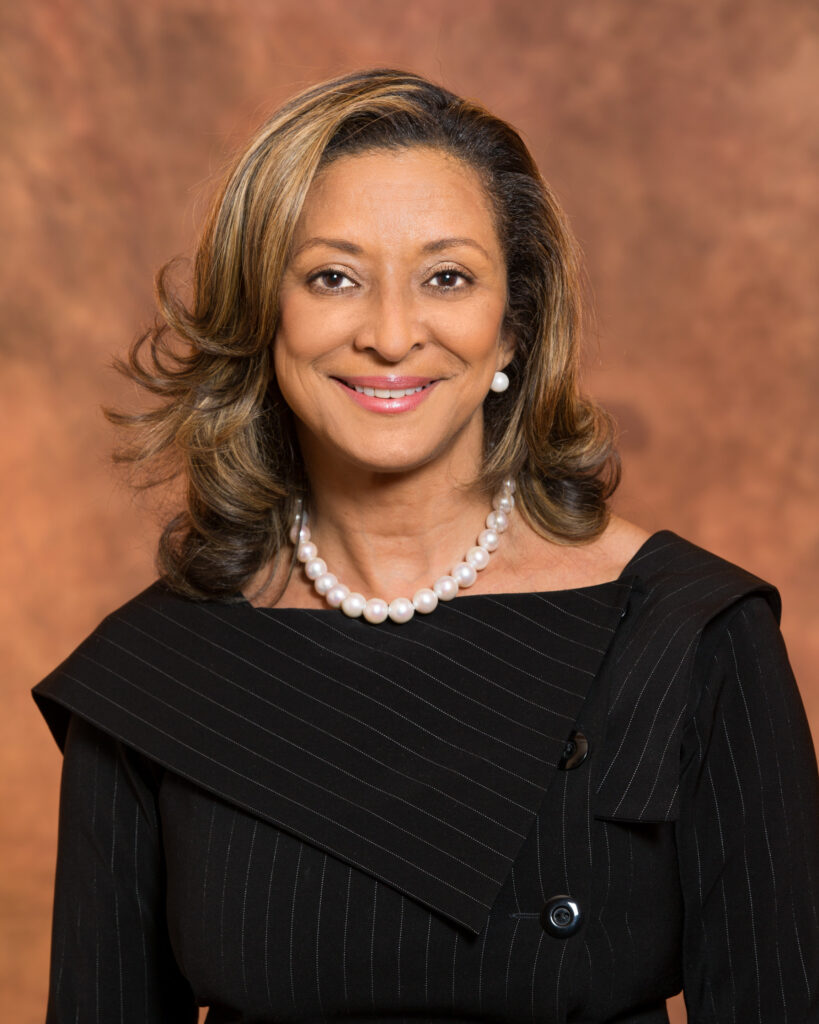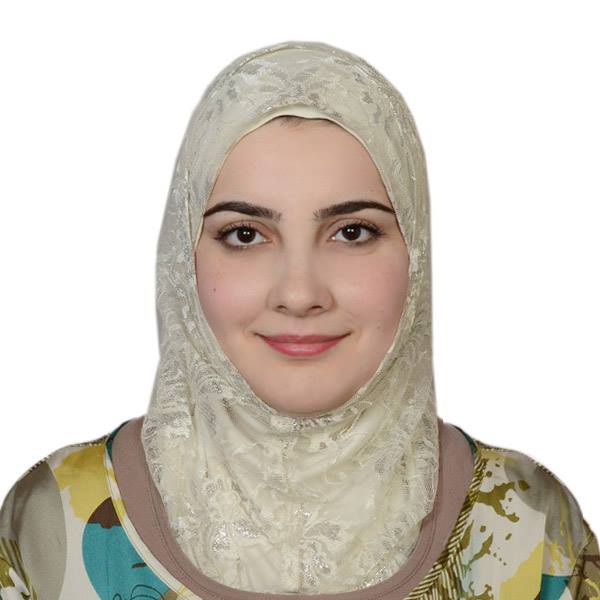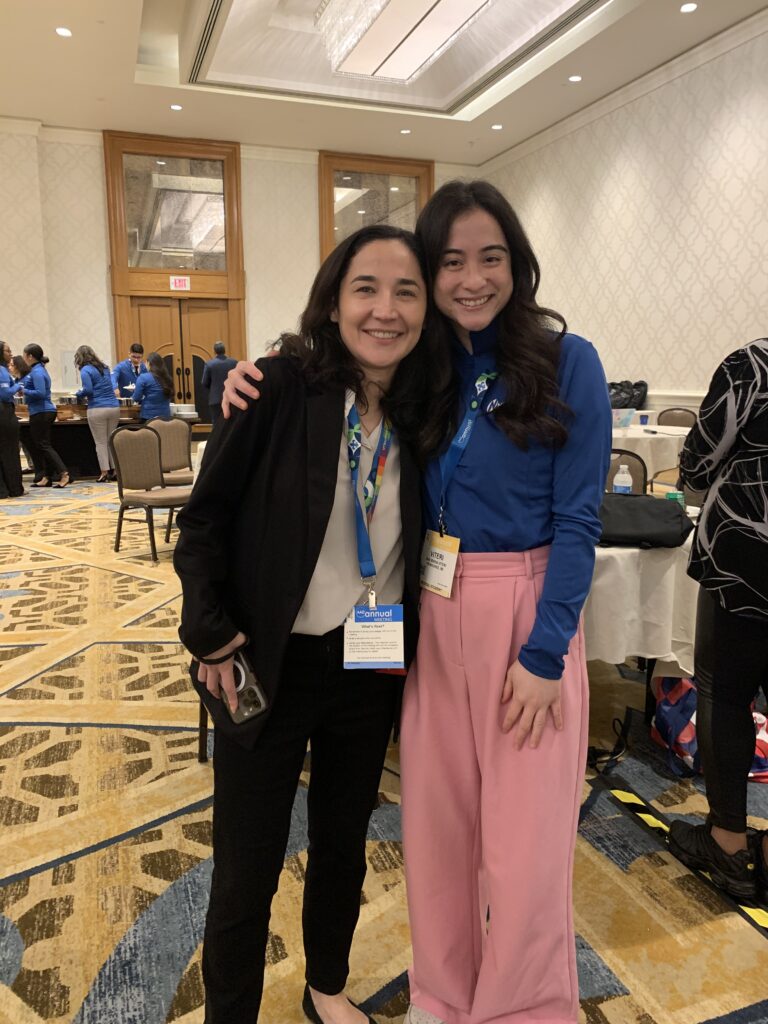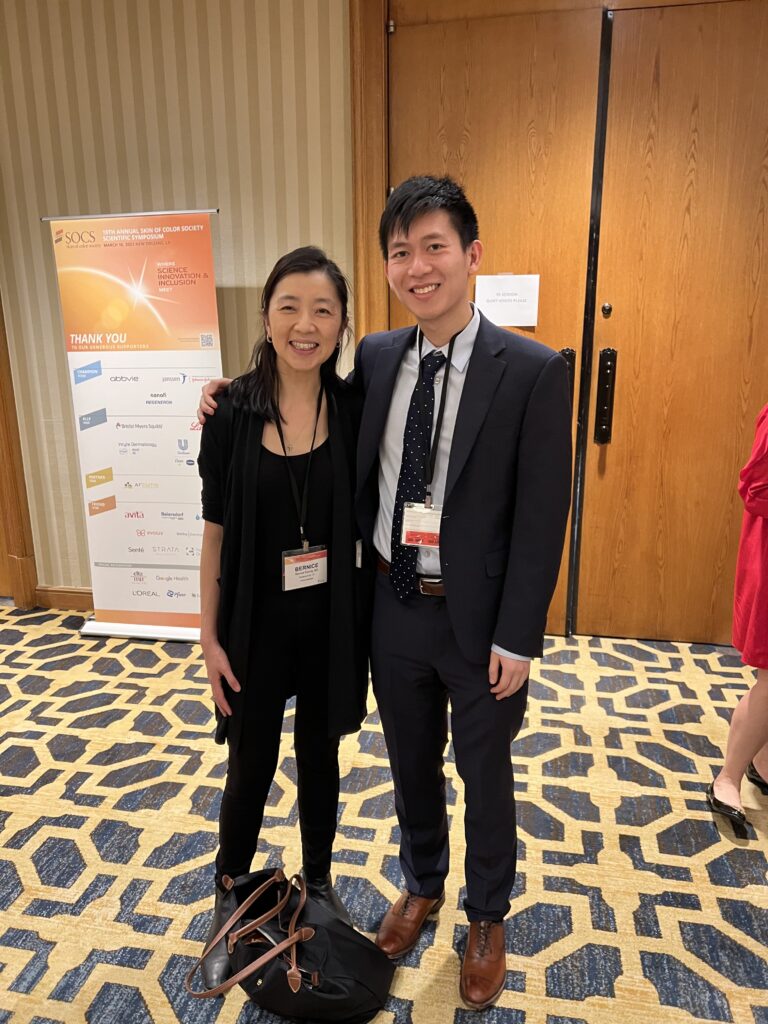Learn more about the SOCS Mentorship Program through the experiences of our past mentees.
Mentorship program applications open August 1.
Participating in the Skin of Color Society mentorship program has been an incredibly enriching and rewarding experience for me both personally and professionally. It has provided me with a unique opportunity to gain exposure to a diverse range of perspectives and experiences within the dermatology field, while also allowing me to forge meaningful connections with respected professionals in the field.
One such connection is with Dr. Seemal Desai, who has been my mentor throughout the program. As a leading expert in skin of color, I feel incredibly fortunate to have been paired with him. Since our first meeting, Dr. Desai has been an unwavering source of guidance, support, and encouragement, providing me with invaluable insights into a variety of topics relevant to my career aspirations. Throughout my research fellowship year, he has consistently made time in his busy schedule to meet with me and answer my questions. His willingness to share his knowledge and expertise has been a tremendous asset, helping me grow and develop professionally.
I am truly grateful for Dr. Desai’s constant support and mentorship, and I look forward to continuing to learn from him. The mentorship program has been an instrumental part of my journey towards achieving my goals, and I am confident that the skills and knowledge I have gained through this program will have a lasting impact on my professional development.
I am extremely grateful for the Skin of Color Society Mentorship Program! I cannot thank my mentor, Dr. Valerie Harvey, enough! She guided me during every stage of my application process. Last year, I was finishing my MBA and knew that my first rotation back would be a Dermatology away rotation. I was nervous, but Dr. Harvey planned a dermatology bootcamp where I worked with her in her office. She helped improve my patient presentations, clinical decision-making, and critiqued a presentation I made discussing new biologics and their indications. She was always available to answer questions, and we met in person, on zoom, and on the phone multiple times throughout the application season. We discussed how many and which programs to apply to, how to redraft my personal statement, and how to reorganize my noteworthy characteristics. During the interviewing and ranking process, Dr. Harvey helped me understand my personal and career goals and create the rank list that helped me match at my #1! Throughout this time, Dr. Harvey also taught me how to improve my research paper writing, and we were able to submit three publications together. I want to thank the Skin of Color Society and Dr. Harvey again and become a future SOCS mentor!
I sought the SOCS Mentorship Program to establish rapport with a mentor who would provide one-on-one guidance and support my interests in dermatology which include skin of color, autoimmune skin diseases, and procedural dermatology. Fortunately, I was matched with Dr. Kenner-Bell, who shared those interests. Since we connected in March 2022, we have gradually built our mentor-mentee relationship. Besides our several communications via text, email, and Zoom, we met in-person at the American Academy of Dermatology meeting twice this past year. Although, we did not work on any research or projects this past year, Dr. Kenner-Bell was a wonderful source of support and wisdom concerning career development in dermatology.
As a 2023-2024 recipient of the SOCS Observership Grant, I have been paired with Dr. Kenner-Bell. I look forward to doing a rotation at her institution, Northwestern Department of Dermatology within the next year. Though the SOCS Mentorship Program has come to an end, I still aspire to continue and maintain a positive collaborative relationship with Dr. Kenner-Bell. I am forever grateful that Skin of Color Society opened those doors for me. As someone coming from an institution without a dermatology program, my participation in SOCS programming has been a life-changing experience!
I envision my career in dermatology to focus on skin of color patients, and even more specifically skin of color patients with pigmentation disorders like vitiligo and melasma. My interest in pigmentation disorders comes from my paternal grandmother’s experience with vitiligo. This condition hindered my grandmother from experiencing her life to the fullest, and I aspire to be a part of the effort to increase the quality of life of those affected by disorders like vitiligo. I have done work in the social sphere of dermatology, interviewing individuals with vitiligo to understand how it impacts their lives and identities for my senior thesis at Tufts University. I learned that these disorders, though not life threatening, have major psychosocial impacts. Additionally, I completed a Fulbright research project in Singapore aiming to understand how to control pigmentary pathways to eventually develop therapeutics for pigmentation disorders. In beginning my journey through medical school, the one part of the practice of dermatology focused on pigmentation and skin of color that I have yet to experience is the clinical side.
I have had a wonderful experience so far in the SOCS Mentorship program, hearing from my mentor, Dr. Leon Kircik about the practice of skin of color dermatology. Our mentorship has consisted of monthly phone meetings to discuss goal setting, planning for residency applications, and research goals. Dr. Kircik was a great sounding board as I made my way through my first year of medical school and began my second year. At Duke, our third year of medical school is spent entirely on research. Dr. Kircik was able to provide great guidance as I navigated the process of finding a research mentor and setting up my research year with Dr. Elena Hawryluk at Massachusetts General Hospital.
During our mentorship year, I was also lucky enough to work on a project about psoriasis in patients with skin of color alongside Dr. Kircik and his research associates. Learning about psoriasis, a condition with similar psychological and social impacts to vitiligo, especially in those with skin of color, was eye opening. I look forward to learning more about conditions where psychosocial impacts and advocacy work should be considered as seriously as physical impacts.
Ultimately, my mentorship under Dr. Kircik was a fruitful and career-building experience. I am thankful for his guidance and look forward to keeping in touch with him as I work towards my goal of becoming a dermatologist.
My participation in the Skin of Color Society mentorship program this past year was nothing short of amazing. From the many conversions with my mentor to the monthly mentoring sessions, this experience has had a positive impact on my journey to becoming a dermatologist.
My mentor is Dr. Lucas Anthony and I am so grateful for her mentorship. She lives in Florida and I attend medical school in Kansas City, Missouri so the majority of our interaction this past year was virtual. We typically check in on a monthly basis and I always leave our conversations feeling rejuvenated about my goals. I updated her on which clinical rotation I was on and she gave very good advice on how to maximize my rotations and be a better student. She also gave me a lot of encouragement and support during times of stress. As I approach the application season, we decided together that confidence is something I continuously need to work on in order to be successful. One of my favorite things about my mentor-mentee relationship with Dr. Lucas Anthony is her ability to provide me with reassurance. She always knows what to say to ease my anxiety. I was so happy to finally meet her in person a year later at the Skin of Color Symposium!
As I reflect on the past year, I am so grateful to have gotten a mentor through the Skin of Color Society. This mentorship experience has been monumental in my pursuit of dermatology. I really appreciated having a mentor that was very active and involved in our relationship. She never made me feel like I was “bothering” or “annoying” her; she genuinely wanted to help in any way she could. This mentorship was especially useful because she taught me strategies that were very helpful when researching residency programs and applying to away rotations. As I continue on this journey, I am confident that the connection I have with Dr. Lucas Anthony will continue to grow and blossom.
The Skin of Color Society Mentorship Program has been a fantastic experience. I feel very honored to be connected and paired with Dr. Julie Mhlaba, as she is so open and available to provide any and all advice on applying into dermatology residency and more. Dr. Mhlaba is a fantastic resource as a board certified dermatologist, who is established in her career, but also having finished residency recently, she provides the unique perspective of someone who has gone through the very same process, and knows what to look for, and how to guide me on my journey with dermatology. She is always very available to connect and chat, even though she is in Chicago and I am in Providence, which has been so nice and helpful. We check in with each other periodically and I love chatting with her as I look up to her as a physician and a person-she is very positive and I feel like she is a true champion for me. She has guided me on how I should think about presenting myself with dermatology applications and interviews coming up for me this year and I also know she will be an available resource to go over my personal statement and application from how to structure it to what specifics should be included. Additionally, I feel that she has been and will continue to be an amazing person to help guide me through multiple aspects of my life, from practicing for interviews, but also life and career thoughts and inquiries so that I can be successful, and navigating through med school to residency and beyond can be difficult on your own. Furthermore, I really appreciate her fresh perspective and feedback as she provides thought-provoking questions, which challenge me to think about my plans overall moving forward and my personal goals. I already feel like she has my best interests at heart and is an open, kind, willing ear to listen and provide guidance, especially as a fellow woman of color, which I truly treasure. She continues to provide advice on school, residency and life, as well as research, which is a big interest of mine. I also appreciate how she is always responsive and communicative with kind reassurance and positive vibes, which is wonderful! Though maybe a small gesture, when I first met her at the SOCS meeting at AAD she sat with me the whole meeting and came to my poster presentation. Her gesture of kindness made me feel as though I had not only gained a mentor but also a really nice friend from the start, which means a lot to me and I know is rare. I am so thankful to have Dr. Mhlaba in my corner and I know this mentor relationship is ongoing and she has been so wonderful and open to being my mentor throughout my career, beyond just this year, which I truly value and appreciate. Thank you so much to the Skin of Color Society for introducing me to Dr. Mhlaba, who I know is going to be in my life forever and for this fantastic mentorship opportunity! I look forward to paying it back and being such a great mentor to someone else soon. Thank you so much.
Over this past year, I really enjoyed my time being a member of the Skin of Color Society. My mentor, Dr. Kenyatta Mireku, has been very great asset during my time as a medical student. She has provided me her experience of being a medical student and things she did to become a competitive applicant for dermatology residency. Dr. Mireku gave me some of her contacts for research in order to get some publications. She even encouraged me to enter my research to the SOCS Scientific Symposium, which I did. Unfortunately, I was not able to attend to the symposium due to having exams during that same week. I do plan on attending to the symposium next year. Overall, this program has been an indispensable experience to guide me through my medical school journey so far. I plan on being part of the Skin of Color Society throughout my medical career and hopefully be able pass down my knowledge and experience to any future medical students that are interested in dermatology.
My experience with the mentorship program has been very rewarding. Dr. André Moreira knew many of the challenges I faced in Brazilian healthcare. As an active member of the dermatology community in Brasil, he inspired me to continue to pursue my goals and be a role model for other young dermatologists working with skin of color. The biggest lesson I learned from him is that we care about our patients and they connect to us. I thank the Skin of Color Society for giving us this opportunity and hope to return the favor by being useful to our community in the future.
The Skin of Color Society (SOCS) mentorship experience helped me better understand the clinical care of patients with skin of color. Dr. Babar Rao provided me with his insights into the latest research and developments in the field of dermatology for skin of color. The sessions provided by the SOCS were also very useful and helped me learn about effective communication, problem-solving, and decision-making to become a better leader and position for career success. Through this experience, I had access to new information, ideas, and perspectives that will support my long-term goal to become a dermatologist and clinical trialist focused on skin of color in the U.S.
I first heard about the Skin of Color Society at the end of my first year in medical school from a student in the year above me who was also interested in dermatology. At that time, I was starting to consider dermatology as a field of interest, and knew it was imperative to pursue dermatology-specific opportunities. I loved Dr. Taylor’s story and the Society’s commitment to educate on dermatologic areas of interest in skin of color.
Upon joining SOCS, I was excited to find out about its mentorship program. I applied without hesitation at the start of my second year, in the hopes of being paired with a dermatologist who could answer my questions about the field, point me in the right direction with regards to research, and provide advice and support through the ups and downs of medical school. Right before starting third year, I was notified that I had been paired up with Dr. Michelle Rodrigues who is based out of Melbourne, Australia.
One of the first challenges we faced as mentor and mentee was overcoming the time difference, as Melbourne is 14 hours ahead of Winston-Salem, North Carolina. With diligent planning, we were able to schedule an initial, introductory phone call. From that phone call I learned about Dr. Rodrigues’ own journey into dermatology, and the hard work and grit that went into getting her to where she is today. She is the founder and director of Chroma Dermatology, a center dedicated to pigmentary disorders and people with skin color, she is involved in clinical research and has authored various publications, and she is a lecturer at the University of Melbourne. In short, Dr. Rodrigues is an inspiration for what one can achieve in their medical field of interest when they have a genuine love for what they do.
In that same phone call, Dr. Rodrigues learned some about my own background, and about my goals for my participation in the mentorship program. We set up a follow-up Zoom meeting, where we spoke candidly about the challenges that lay ahead in my journey to applying for a residency in dermatology. She made suggestions for next steps and began connecting me with faculty in US-based residency programs, including at Henry Ford in Detroit.
When I reflect on my mentorship experience, I believe I’ve achieved most of what I set out to accomplish over a 1-year period. I formed a relationship with a trailblazer in the field, one I hope to continue in my professional life. Dr. Rodrigues’ support, although at a distance, gave me the confidence to reach out to faculty for research projects. I’ve since been involved in a variety of dermatology-related research and community projects, some of which have been published and some which I hope to present at conferences in the upcoming year. I’ve taken the lead on dermatology-specific initiatives that are of interest to me, including for Spanish-speaking patients with hidradenitis suppurativa, and a community outreach program for increased skin cancer awareness in patients with skin of color. I’ve also really enjoyed the monthly, virtual meetings available to all mentees in the program, where I’ve gained advice and tips from current dermatology residents and program directors.
Although Dr. Rodrigues could not attend the SOCS meeting in New Orleans this year, I decided to go and got to meet some of the faculty I had been introduced to virtually. I met other mentees in the mentorship program, research fellows (including Yae Kye pictured with me), and really enjoyed being a part of the larger SOCS community. As I get closer and closer to applying for residency, I intend on continuing my relationship with Dr. Rodrigues. It’s my hope that we meet in person one day, so that I may thank her in person for instilling a sense of boldness and for helping me prioritize where I invest my time and energy. This advice, along with the advice of the other mentors I’ve found along the way, will hopefully make me into a well-rounded, dermatology residency applicant, and one step-closer to my ultimate goal of becoming a bilingual dermatologist.
As I was introduced to the Skin of Color field and the SCOS in recent years, I became excited for the idea of a mentorship program that would enable me to connect and learn from an expert in this great field at this stage of my career. I was very thrilled when I got the 2022-2023 mentorship program with Dr. Susan C. Taylor.
During the program, I met with my mentor several times via zoom and communicated through emails as well. We worked on a literature review article about skin aging exposome in Skin of Color populations. We performed an extensive search in the PubMed and Google scholar databases, and we included peer-reviewed studies in SOC populations around the world regarding one or more of the skin aging exposome factors, and we grouped and organized the studies under each factor of the skin aging exposome.
This hard work paid off when our article was recently published in the Dermatologic Surgery Journal. We also got this accepted as iPoster at the 19th Annual Skin of Color Society Scientific Symposium in New Orleans, LA, and then I got the chance to attend the meeting in person and to meet with great people during it.
This mentorship program was an amazing and big opportunity for me. I got to acquire more knowledge about the unique aspects of skin diseases in Skin of Color population. I was lucky to learn from a true leader and idol in this field, Dr. Susan Taylor. I highly recommend this program to any young physician who is looking to solidify career goals and become more involved in the Skin of Color field by connecting with its leaders.
The Skin of Color Mentorship Program has been one of the best experiences I have been fortunate to be a part of. Through this program, I got to be mentored by a true powerhouse, leader, and change-maker in the field of dermatology: Dr. Rebecca Vasquez, MD FAAD. Her dynamic leadership, warm demeanor, and uplifting energy allowed me to envision myself in this field despite its challenges. Dr. Vasquez allowed me to see the unique characteristics I bring to the table while also eagerly celebrating my professional and personal wins. As a Latina, immigrant, and first generation student, it is very rare for me to find mentors that are able to culturally and linguistically understand my background. For this and many reasons, words do not fully capture the unending gratitude I have for SOCS for the chance to work with someone from a similar cultural background and professional aspirations. It motivates me and allows me to see that I, too, belong in the field of dermatology.
Dr. Vasquez’s insight and advice has helped me be intentional about my pursuits in dermatology, so my application is representative of me as a person. I have felt deeply supported and encouraged by her. An exciting opportunity that has arisen from this experience is the chance for Dr. Vasquez to meet my dermatology mentor from the Medical College of Wisconsin. We all met in person at the 2023 AAD meeting and it was exceptional. We hope to work together on a project soon. Overall, the SOCS mentorship program has been invaluable to my professional growth and has connected me with transformative leaders in dermatology. My greatest dream is to follow in their foot-steps to make a strong impact in the field of dermatology, in our local communities, and greater society.
I am so grateful that I was able to participate in the SOCS Mentorship program with Dr. Bernice Kwong. Despite her incredibly busy schedule and many responsibilities, Dr. Kwong and I met every month to discuss skin of color topics specifically in supportive oncodermatology. With her mentorship, we came up with research projects that she noticed disproportionately impacted her skin of color patients in clinic. She taught me incredibly valuable lessons on how to turn important clinical questions and translate that into action through conducting research to answer those questions. We are still actively working on three projects, and she has been so supportive in every step of the way, from IRB development to manuscript drafting. I had the opportunity to spend a day observing her in clinic and it was so clear to me how compassionate she was towards her patients, and how she considered her patients’ various skin tones in the context of diagnosing and managing their conditions. We have also discussed various DEI issues and how conditions that disproportionately affect SOC patients are more likely to be brushed off in academia, and how we can combat these disparities affecting the most underserved patients. This mentorship program was also during my clerkship year and board exams, and I always felt like Dr. Kwong was someone I could confide in when I was struggling, and someone who I could celebrate my triumphs with as well. I feel like the luckiest mentee to spend time with someone incredible like her. We have enjoyed working with each other so much that we applied for the SOCS Observership Grant to continue our work together, and I am so excited that I will get the spend an entire month with Dr. Kwong and her team at Stanford. Thanks to the SOCS I have a lifelong mentor who I know will support me in succeeding personally and professionally, and I hope I can become a brilliant and caring physician like her who cares for the most vulnerable patients.
Thanks to the Skin of Color Society Mentorship Program, my time with Dr. Kenner-Bell has been enriching, educationally and professionally. She was attune to many of the same challenges that I experienced navigating the healthcare field as not only a minority but also a woman. Through our many zoom sessions, she shared with me her journey into dermatology and the obstacles she had to overcome. Additionally, as a practicing pediatric-dermatologist, wife, and mother she revealed to me the realities of fulfilling these roles and how to strive for the best work-life balance. Dr. Kenner-Bell is a natural mentor; She spent time reviewing my CV with me, sharing dermatological research opportunities, and discussing ways to enhance my application. She also became my biggest cheerleader and confidant, supporting and encouraging me on my journey and always lending an open ear during times of doubt. Dr. Kenner-Bell has served as real-life confirmation that my dreams of becoming a dermatologist are valid and attainable and has given me the self-efficacy and confidence to relentlessly pursue the field of dermatology.
Realization of my goal necessitates professional mentorship, opportunities to conduct clinical research, and a thorough understanding of the field of dermatology. Upon completion of the mentorship program, I have created a personal and professional relationship with my mentor, become knowledgeable on the principles of career and professional development in the dermatology field, and found opportunities to connect with diverse dermatologists that specialize in skin of color. Additionally, I have gained insight on the dermatology application process, and becoming a multi-faceted, well-rounded dermatology applicant. Through the opportunities afforded by the Skin of Color Society, I look forward to joining a network of passionate physicians dedicated to improving the dermatological disorders that plague skin of color.
Deciding to pursue dermatology as a Black female is a journey on an untrodden trail. The paucity of role models, representation, and resources to support Black students interested in dermatology is stark. Finding opportunities like the Skin of Color Society Mentorship program is crucial for me in my pursuit of matching into a dermatology residency program and achieving my goal of becoming a practicing dermatologist and minority health clinical researcher.
I understand not having a seat at the table. As a future dermatologist, I’m determined to pay it forward and create more seats for those behind me, providing my mentorship and expertise to the next generation of dermatologists so that they can realize their dreams just as I have.
Ashley Obi, MD
2021 SOCS Mentorship Program Summary
As a student without a dermatology home program, I am so thankful to the Skin of Color Society’s Mentorship program and to Dr. Pierre. Dr Pierre is the first mentor in Dermatology I have had and has provided me with invaluable guidance and direction. He is a goal-oriented mentor and I always look forward to our check-in sessions. Any question or concern regarding my plans or endeavors, I have an objective, knowledgeable ear. We discuss strategy, residency, resilience, and the makings of a patient-centered dermatologist. I hope that one day I can meet him in person and thank him again for everything he has done for me.
Chrislene Olukoga
2021 SOCS Mentorship Program Summary

Dear SOCS mentorship committee,
It has been an absolute pleasure to be mentored by Dr. Tarannum Jaleel through your program. As an Iranian immigrant with skin that sometimes passes as White and sometimes does not, I do not necessarily see my skin represented in traditional dermatology media – let alone that of my Black and Brown friends. When the pandemic struck in early 2020, I came across your SOCS mentorship program on Instagram. As a Canadian medical student, I was grateful to match to a mentor from the US, which is championing the SOC representation movement.
Despite the uncertain times of the pandemic, my final year of medical school, and Dr. Jaleel’s maternity leave, we still managed to meet a total of 3 meaningful times over the past year on Zoom. One of the most valuable outcomes for me was to learn more from Dr. Jaleel about the few SOC textbooks that existed at the time. With Dr. Jaleel’s encouragement, I helped make change in a big way on a local scale – I led the Dermatology component of an anti-racist review of McGill’s entire pre-clerkship curriculum. As the Dermatology lead, I dove into ethnodermatology resources and found SOC pictures to include alongside each condition in our dermatology lectures. I am most proud of the feedback we have received from classmates, residents, and staff physicians, who shared they are finally seeing themselves in their lectures.
With Dr. Jaleel, we also discussed advancing my other research interests. She connected me with International Dermatology Outcome Measures groups for these respective areas and liaised me with local leaders in Canada doing similar work.
Dr. Jaleel and I also had candid, meaningful conversations beyond research: her experience as a woman and mother in dermatology, how to advocate for appropriate maternity leave, renumeration as a dermatologist in Canada versus the US, and the ever-interesting debate of cosmetic versus medical dermatology. Dr. Jaleel held space for me to be open and vulnerable, and despite our never having met in-person I feel very connected to her.
Lastly, as a Canadian, I believe it is worthy to note my appreciation to the SOCS for opening this opportunity to Canadian medical students as well. I have learned so much from my American mentor, and I believe the international perspective and experience added much value to my experience. I sincerely hope more Canadian medical students will be able to benefit from this as much as I have!
Finally, as of 3 days ago (match day was April 12 2022 in Canada) I am now officially a future dermatologist! I matched to Dermatology at McGill University. I am elated to be able to continue the important SOC work that I have already begun here, and am indebted to Dr. Tarannum as well as many other leaders I have connected with through the SOCS. I met Dr. Alexis and Dr. Taylor in-person recently at the AAD 2022 Boston conference, and it was such a joy to thank them in person. I hope to attend the upcoming SOCS conference in New York later this year as well and continue to thank the SOCS leaders that have shaped the kind of future dermatologist I will be!
With many thanks,
Nickoo Merati
Nickoo Merati
4th year medical student
McGill University
Montréal, Quebec
2021 SOCS Mentorship Program Summary
First, I’d like to thank the Skin of Color Society for organizing this wonderful mentorship program for dermatology residents in North America. I was paired with Dr. Vineet Mishra for this mentorship program for the past year. Although I am in Vancouver, Canada, I was able to connect virtually with Dr. Mishra. We discussed about the issues of Skin of Color in dermatology during our meet-up. We also discussed about my career goals and Dr. Mishra shared useful tips to help me succeed in residency. Based on our conversation, I was inspired to investigate the issue of dermatology education in the area of skin of color for Canadian dermatology residents. I published a commentary titled “Dermatology education in skin of colour: where we are and where do we go?” in the Canadian Medical Education Journal. I was also connected with Dr. Mishra on the research level as I am currently working on some research projects that demonstrate our common interests. I am looking forward to meeting Dr. Mishra in person when he will be attending the AAD Innovation Conference in July 2022. Thank you again for this wonderful program that helps residents connect with experts and advocates in the areas of Skin of Color!
Harry Liu, MD
2021 SOCS Mentorship Program Summary
Being a resident during the pandemic has made it difficult to form connections with skin of color faculty. I really enjoyed my experience with the mentorship program and am grateful to the SOCS for allowing me to meet Dr. Janiene Luke at Loma Linda. For the last year, I have had the opportunity to develop a mentor relationship with Dr. Luke through our monthly zoom meetings. As a third-year resident, I found our meetings to be very useful for discussing post residency career planning, cosmetics, and how to supplement my knowledge to feel more comfortable treating skin diseases in skin of color patients. Most importantly, I was able to openly discuss my own feelings of inadequacy and “imposter syndrome” that I have experienced in residency and during my job search.
The most memorable part of the experience was meeting Dr. Luke at the SOCS AAD pre-meeting in March. It was great to meet someone in person that I felt I had already known well from zoom.
My take aways from the experience are to trust in my abilities, not be afraid to ask questions, and be assured that even after residency there is continued learning while in practice. I am excited to continue to connect with Dr. Luke and update her about my career journey.
Krystina Quow
2021 SOCS Mentorship Program Summary
I found the SOCS mentorship experience to be very beneficial. The first time I met with my mentor, Dr. Mhlaba, was shortly after starting my fourth year of medical school. We had a call to introduce ourselves, and we discussed my interests in dermatology and skin of color. Dr. Mhlaba was very supportive in giving advice to help me select away rotation programs that are strong in skin of color, and she even connected me with a current resident at the program that I eventually rotated at. She also assisted by recommending residency programs with skin of color experts that I should research and consider applying to. At the beginning residency interview season, Dr. Mhlaba gave me a practice interview, which was extremely beneficial in helping me prepare for the questions I would be asked. After the conclusion of interview season, I had follow-up questions about one particular program that I was interested in. Dr. Mhlaba connected me with one of her colleagues who had done residency at this program, who was able to have a phone call with me to answer my questions. Our ability to meet in person was limited due to factors related to Covid-19, but I was always met with support anytime I reached out, and Dr. Mhlaba would make sure to check in on me occasionally during crucial steps of the application process. I was very appreciative of the insight and information that I received from my mentor, and it made a big difference in how I approached fourth-year and residency applications. For this reason, I found the SOCS mentorship program to be quite useful.
Seneca Hutson
2021 SOCS Mentorship Program Summary
I was fortunate to complete my SOCS Mentorship with Dr. Andrew Alexis. We were able to cover many topics over the course of the year.
We began by thinking through my specific clinical interests within the field of skin of color. Through our discussions, Dr. Alexis helped me realize my particular interest in vitiligo and pigmentation disorders. This has been very helpful for me as I think about developing expertise in skin of color broadly but also seeking opportunities to build deeper expertise in these areas. We also discussed opportunities to get involved in scholarship, writing, and speaking, and I really appreciated his encouragement to get involved in these areas to help advance our field.
Dr. Alexis also gave me very practical and helpful advice regarding building my leadership skills and experience as well. He recommended getting involved with committees in my hospital system and in dermatology organizations. He noted these can be great opportunities to collaborate with others, make connections and develop different skills. He encouraged me to take on smaller roles in these arenas at the beginning, noting that doing a great job at one thing often leads to larger opportunities down the road.
I feel very fortunate to have connected with Dr. Alexis and to have learned from him this year. I am very grateful to him and to SOCS for supporting my learning and development through this mentorship program.
Nicole Gunasekera, MD, MBA
2021 SOCS Mentorship Program Summary
My experience with the Skin of Color Society Mentorship program was excellent! I was paired with a mentor that I already knew personally, which allowed for immediate rapport and comfortability. Dr. Eva Kerby was my mentor, and she and I both did our undergraduate studies at Duke University. We knew each other well back then, and I remember talking with her about our dreams to be Dermatologists all those years ago. It was a pleasant surprise when I saw I had been paired with her!
Dr. Kerby was a fantastic mentor, and she is someone I plan to keep in touch with throughout my career. Talking to her has widened my perspective on what is possible to do during my first few years out of residency. Dr. Kerby incorporates general, surgical, and cosmetic dermatology into her practice and utilizes these skills in her skin of color interests as well. This is what I hope to do in the next few years after residency. Diversifying my skillset early on will help me figure out which topics in Skin of Color, and Dermatology in general, I feel the most passionate about. At my training program, it is not common to have a provider do a combination of general, surgical, and cosmetic dermatology, so having Dr. Kerby to share ideas with and get a feel for how one can successfully mix these in their practice was inspiring. Hearing her journey to discovering her interests in skin of color has also been valuable. I am not sure what “niche” I will pursue just yet, but Dr. Kerby provided sage advice on how to clarify these interests for the future.
Additionally, Dr. Kerby has been an invaluable resource as I look for jobs. I have reached out to her at every step of my job search and will continue to do so. This search can be intimidating for those of us who have never attempted to look for a job in Dermatology, and having wise counsel is crucial. She has helped me sift out offers that are not in my best interest, and she has also helped to point out aspects of a contract/offer that may be red flags. I would not have been able to approach the job search with as much insight without her input. I am very grateful for her.
Lastly, Dr. Kerby is a wife and mother, and she can relate to me in a special way because of this. I have been able to learn from her experiences and see how she handles work/family balance as a practicing Academic Dermatologist. Above all, I hope to establish this balance well throughout my career.
Imara-Safi Scott
Duke Dermatology, PGY4
2021 SOCS Mentorship Program Summary
